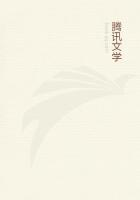SOCRATES: And first of all, that we may not peradventure be deceived by appearances, fancying, perhaps, that we are taking care of ourselves when we are not, what is the meaning of a man taking care of himself? and when does he take care? Does he take care of himself when he takes care of what belongs to him?
ALCIBIADES: I should think so.
SOCRATES: When does a man take care of his feet? Does he not take care of them when he takes care of that which belongs to his feet?
ALCIBIADES: I do not understand.
SOCRATES: Let me take the hand as an illustration; does not a ring belong to the finger, and to the finger only?
ALCIBIADES: Yes.
SOCRATES: And the shoe in like manner to the foot?
ALCIBIADES: Yes.
SOCRATES: And when we take care of our shoes, do we not take care of our feet?
ALCIBIADES: I do not comprehend, Socrates.
SOCRATES: But you would admit, Alcibiades, that to take proper care of a thing is a correct expression?
ALCIBIADES: Yes.
SOCRATES: And taking proper care means improving?
ALCIBIADES: Yes.
SOCRATES: And what is the art which improves our shoes?
ALCIBIADES: Shoe******.
SOCRATES: Then by shoe****** we take care of our shoes?
ALCIBIADES: Yes.
SOCRATES: And do we by shoe****** take care of our feet, or by some other art which improves the feet?
ALCIBIADES: By some other art.
SOCRATES: And the same art improves the feet which improves the rest of the body?
ALCIBIADES: Very true.
SOCRATES: Which is gymnastic?
ALCIBIADES: Certainly.
SOCRATES: Then by gymnastic we take care of our feet, and by shoe****** of that which belongs to our feet?
ALCIBIADES: Very true.
SOCRATES: And by gymnastic we take care of our hands, and by the art of graving rings of that which belongs to our hands?
ALCIBIADES: Yes.
SOCRATES: And by gymnastic we take care of the body, and by the art of weaving and the other arts we take care of the things of the body?
ALCIBIADES: Clearly.
SOCRATES: Then the art which takes care of each thing is different from that which takes care of the belongings of each thing?
ALCIBIADES: True.
SOCRATES: Then in taking care of what belongs to you, you do not take care of yourself?
ALCIBIADES: Certainly not.
SOCRATES: For the art which takes care of our belongings appears not to be the same as that which takes care of ourselves?
ALCIBIADES: Clearly not.
SOCRATES: And now let me ask you what is the art with which we take care of ourselves?
ALCIBIADES: I cannot say.
SOCRATES: At any rate, thus much has been admitted, that the art is not one which makes any of our possessions, but which makes ourselves better?
ALCIBIADES: True.
SOCRATES: But should we ever have known what art makes a shoe better, if we did not know a shoe?
ALCIBIADES: Impossible.
SOCRATES: Nor should we know what art makes a ring better, if we did not know a ring?
ALCIBIADES: That is true.
SOCRATES: And can we ever know what art makes a man better, if we do not know what we are ourselves?
ALCIBIADES: Impossible.
SOCRATES: And is self-knowledge such an easy thing, and was he to be lightly esteemed who inscribed the text on the temple at Delphi? Or is self-knowledge a difficult thing, which few are able to attain?
ALCIBIADES: At times I fancy, Socrates, that anybody can know himself; at other times the task appears to be very difficult.
SOCRATES: But whether easy or difficult, Alcibiades, still there is no other way; knowing what we are, we shall know how to take care of ourselves, and if we are ignorant we shall not know.
ALCIBIADES: That is true.
SOCRATES: Well, then, let us see in what way the self-existent can be discovered by us; that will give us a chance of discovering our own existence, which otherwise we can never know.
ALCIBIADES: You say truly.
SOCRATES: Come, now, I beseech you, tell me with whom you are conversing?
--with whom but with me?
ALCIBIADES: Yes.
SOCRATES: As I am, with you?
ALCIBIADES: Yes.
SOCRATES: That is to say, I, Socrates, am talking?
ALCIBIADES: Yes.
SOCRATES: And Alcibiades is my hearer?
ALCIBIADES: Yes.
SOCRATES: And I in talking use words?
ALCIBIADES: Certainly.
SOCRATES: And talking and using words have, I suppose, the same meaning?
ALCIBIADES: To be sure.
SOCRATES: And the user is not the same as the thing which he uses?
ALCIBIADES: What do you mean?
SOCRATES: I will explain; the shoemaker, for example, uses a square tool, and a circular tool, and other tools for cutting?
ALCIBIADES: Yes.
SOCRATES: But the tool is not the same as the cutter and user of the tool?
ALCIBIADES: Of course not.
SOCRATES: And in the same way the instrument of the harper is to be distinguished from the harper himself?
ALCIBIADES: It is.
SOCRATES: Now the question which I asked was whether you conceive the user to be always different from that which he uses?
ALCIBIADES: I do.
SOCRATES: Then what shall we say of the shoemaker? Does he cut with his tools only or with his hands?
ALCIBIADES: With his hands as well.
SOCRATES: He uses his hands too?
ALCIBIADES: Yes.
SOCRATES: And does he use his eyes in cutting leather?
ALCIBIADES: He does.
SOCRATES: And we admit that the user is not the same with the things which he uses?
ALCIBIADES: Yes.
SOCRATES: Then the shoemaker and the harper are to be distinguished from the hands and feet which they use?
ALCIBIADES: Clearly.
SOCRATES: And does not a man use the whole body?
ALCIBIADES: Certainly.
SOCRATES: And that which uses is different from that which is used?
ALCIBIADES: True.
SOCRATES: Then a man is not the same as his own body?
ALCIBIADES: That is the inference.
SOCRATES: What is he, then?
ALCIBIADES: I cannot say.
SOCRATES: Nay, you can say that he is the user of the body.
ALCIBIADES: Yes.
SOCRATES: And the user of the body is the soul?
ALCIBIADES: Yes, the soul.
SOCRATES: And the soul rules?
ALCIBIADES: Yes.
SOCRATES: Let me make an assertion which will, I think, be universally admitted.
ALCIBIADES: What is it?
SOCRATES: That man is one of three things.
ALCIBIADES: What are they?
SOCRATES: Soul, body, or both together forming a whole.
ALCIBIADES: Certainly.
SOCRATES: But did we not say that the actual ruling principle of the body is man?













